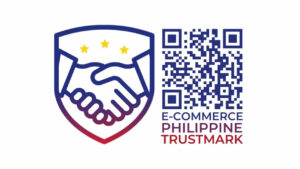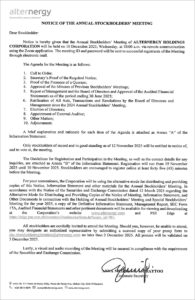REDUNDANT government policies are increasing the compliance burden on online sellers as overseas competition intensifies, an industry association said.
The Online Negosyo Empowerment Community (ONEC), which counts among its numbers online sellers and micro-entrepreneurs, called for the regulatory environment to be more friendly to online sellers.
“I believe that our country should be friendly to our businessmen because those are the ones that give jobs and pay taxes. Businesses should grow and not close, which is what is happening to small sellers right now,” Anna C. Magkawas, lead convenor of ONEC, told reporters on Monday.
The group pointed to the Department of Trade and Industry’s E-commerce Trustmark as a “redundant” policy.
“The current trustmark proposal is redundant, duplicating existing consumer laws, product standards, intellectual property protections, and platform verification systems,” ONEC said.
“With trustmark voluntary only until Dec. 31, the group urges that it be declared permanently voluntary, not required by platforms, aspirational, and private-sector-led, with the government focusing instead on enforcing existing laws,” it added.
ONEC said eligibility for the e-commerce trustmark duplicates requirements for other permits online sellers need to obtain before selling on major platforms.
With similar requirements, the trustmark’s purpose of deterring scammers is defeated; instead, the group urged the government to be stricter in enforcing existing regulations and not add layers of bureaucracy that not every online seller can comply with.
“The DTI has good advocacy, which is consumer protection, but again… there are more things that should be prioritized now,” said Ms. Magkawas.
In particular, she said that the government should address how fraudulent online sellers are able to sell on large platforms, which require them to hold business permits.
Meanwhile, the group is also calling for relief from additional charges being imposed by major online platforms.
“The group calls for full transparency and justification of the new P5 fee imposed by major platforms,” ONEC said.
“With rising costs and inflation, micro-sellers cannot absorb additional charges. ONEC urges platforms to review and reduce the fee, ideally to below P1,” it added.
According to the group, online platforms are charging sellers P5 for every transaction, which funds improvements to the platforms.
The platforms also charge processing fees and fees related to the sellers’ participation in the platforms’ promotions.
Ms. Magkawas said the playing field is uneven with foreign competition, who can access the Philippine market with little difficulty.
“Sellers from other countries, like China, malaya silang nakakapagbenta dito sa atin (they are free to sell here). Paano makakasabay ang local sellers natin when it comes to price? (how can we compete on price?),” she said. — Justine Irish D. Tabile






